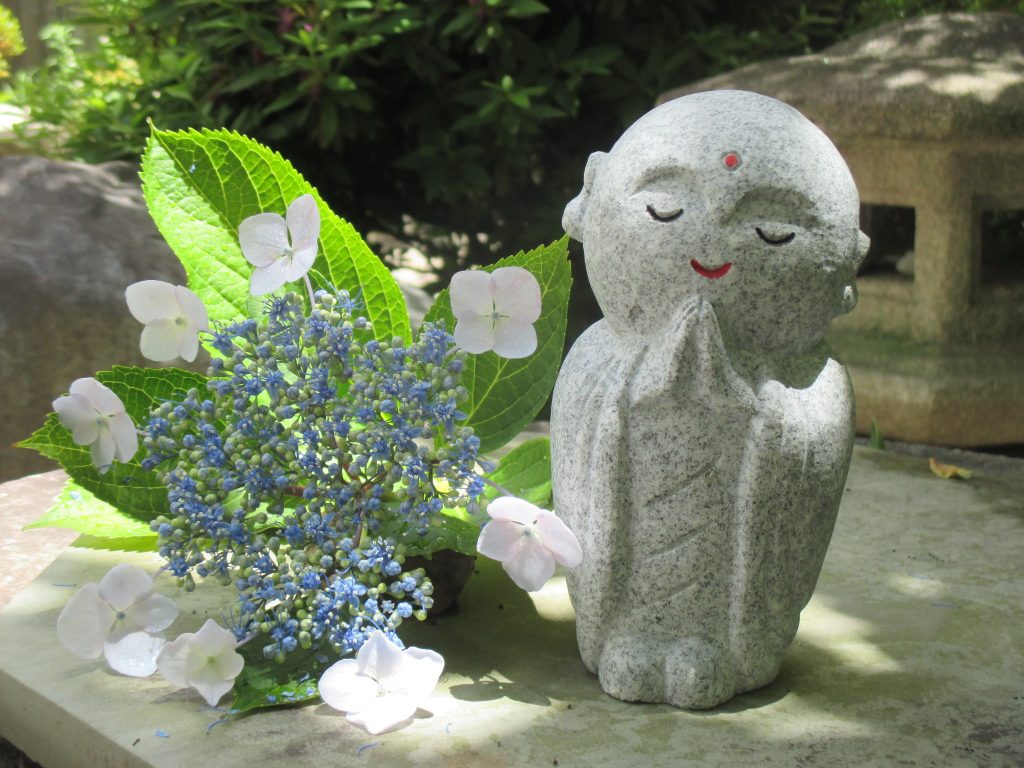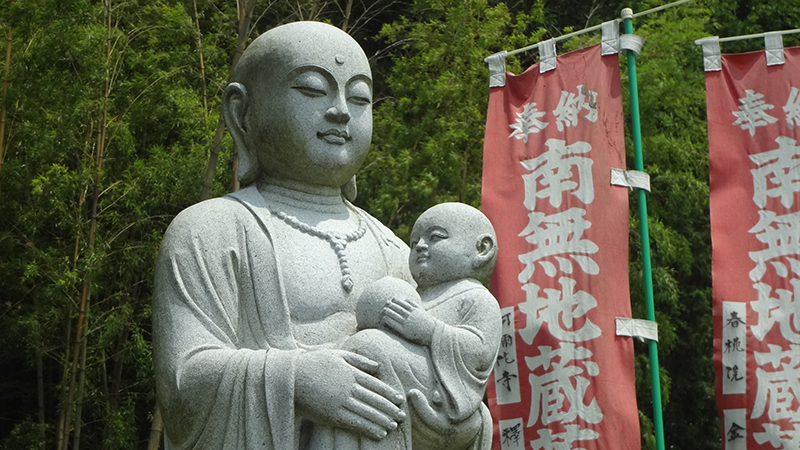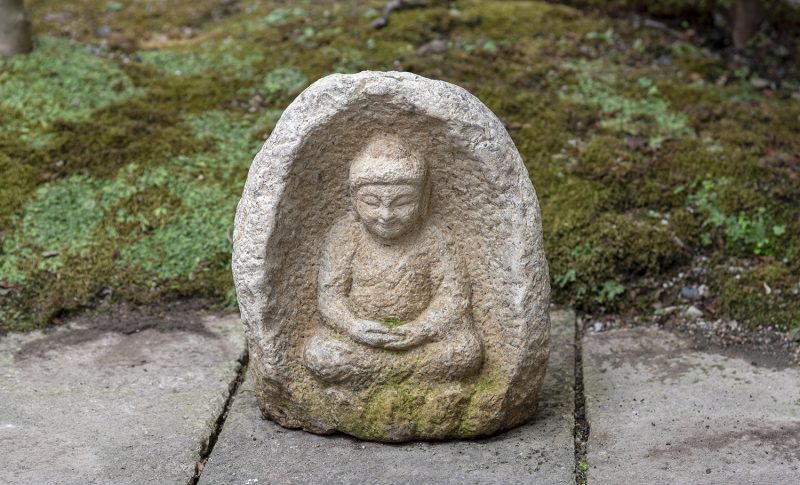In recent years, there has been a growing interest among overseas visitors in obtaining Jizo statues. Jizo statues, commonly seen in temples and along the roadside in Japan, represent a unique aspect of Japanese culture. What significance lies behind these Jizo statues? This time, we have compiled basic information about Jizo statues.

Jizo, also known as Jizo Bodhisattva, is one of the most beloved figures in Buddhism. Bodhisattvas are beings who have committed to achieving enlightenment but choose to postpone Buddhahood to help others attain the same goal. Originally from ancient India, Jizo is known by the Sanskrit name Kshitigarbha, which means “Womb of the Earth.” Just like the earth nurtures and supports all life, Jizo is believed to protect and guide people through suffering with a heart full of deep compassion. Jizo is also referred to as the “earth bearer,” which is why Jizo statues are typically made of stone. Stone is believed to hold spiritual power that offers protection and promotes longevity, a belief that dates back even before the advent of Buddhism.

In Japan, Jizo is often thought of as the guardian of children, especially those who have passed away or were never born. He is also known as the protector of souls who suffer in the underworld. The story of Jizo’s presence in Japan goes back to the Nara period (710–784 CE), during the reign of Emperor Shōmu, when the first Jizo statue was introduced. Jizo is typically depicted as a shaven-headed monk in robes. His simple, unadorned appearance symbolizes his closeness to the people, showing his accessibility, protection, and compassion. Over time, Jizo has become an important figure in Japanese culture and is often seen in temples, gardens, and cemeteries.
During the Edo period (1603–1868), there was widespread belief that the souls of children who die before their parents are not able to cross the Sanzu River—a river that souls must cross on their way to the afterlife—on their own. These souls are condemned to endlessly stack small stone towers to atone for their sin of causing their parents pain by dying before them, but each time they finish, the towers are knocked over by Oni (devils). The significance of these stone towers goes beyond securing merit for the afterlife; they also serve as a form of protection. When the towers are destroyed, the Oni can hunt the children, and it is at this moment that Jizo Bosatsu shelters them by hiding them under his robes, taking on the role of their guardian in place of their parents. Some parents place toys, bibs, or small hats on Jizo statues, wishing for their children’s safe passage to the afterlife. Jizo statues are commonly seen dressed in red hats, bibs, and clothing, with the red color symbolizing protection from illness and evil spirits.

Buddhist teachings state that all living beings are born into one of six realms of existence (Samsara – the cycle of life and death), destined to experience death and rebirth in an endless cycle across countless lifetimes. Jizo is the protector of all beings in these six realms, serving as the patron saint of expectant mothers, women in labor, children, firefighters, travelers, and pilgrims. You’ll often see his statues in cemeteries and along roadsides, where people pray for his protection on difficult journeys.
In short, Jizo embodies the power of compassion and protection for the most vulnerable, and his presence brings comfort to those facing loss or hardship. Whether as a guardian of children, a protector of travelers, or a guide through the afterlife, Jizo’s compassion is felt by many around the world.
At ISHIMO, we offer a variety of Jizo statues and stone Buddhas hand-carved by craftsmen in stone-producing regions across Japan. Located near Nijo Castle in Kyoto, ISHIMO is easily accessible, making it a must-visit during your sightseeing. We also provide international shipping.
Moreover, our online shop, ISHIMO, allows you to purchase Japanese stone carvings from overseas. Please take a look.

コメント